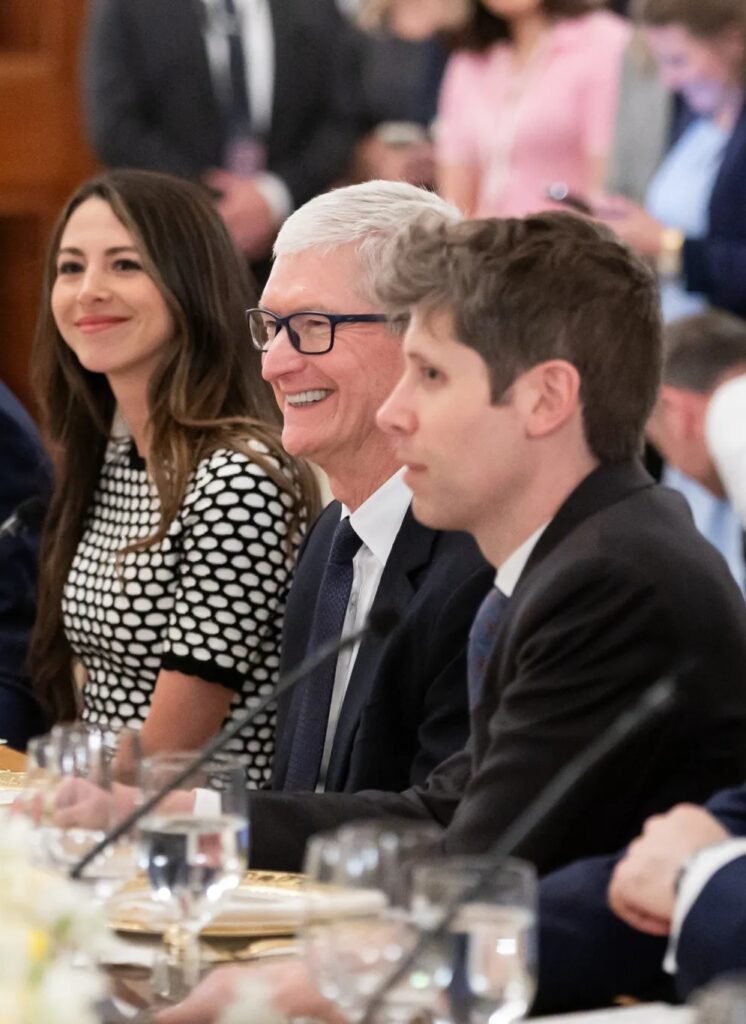In a Fourth of July post that lit up X, Sam Altman, the billionaire CEO of OpenAI, declared himself “politically homeless,” taking a swipe at the Democratic Party for abandoning the innovation and entrepreneurship he holds dear.
His words, dripping with patriotic fervor, also served up a defense of “techno-capitalism”—a system where wealth is created through technology and, ideally, shared widely. The post wasn’t just a holiday musing; it was a pointed rebuttal to Zohran Mamdani, a New York City mayoral candidate who’d recently argued on Meet The Press that billionaires shouldn’t exist. Altman’s response? Stop trying to erase the rich—figure out how to give everyone what they have instead.
But there’s more to this story than a billionaire clapping back at a progressive. Altman’s walking a tightrope, balancing his capitalist cheerleading with a nod to wealth distribution, all while keeping an eye on the political horizon—specifically, the shadow of Donald Trump.
Once the co-founder of a nonprofit OpenAI, Altman’s now a full-throated advocate for capitalism’s “compounding magic,” even as the world grows wary of unchecked billionaire wealth. Is he trying to stay neutral to dodge Trump’s wrath, or is he genuinely charting a new path? Let’s dive in.
The July 4th Post: Key Points That Started It All
Here’s the breakdown of Altman’s CNBC-covered X post from July 4, 2025:
- Pride in America: Altman celebrated the Fourth, calling the U.S. “the greatest country ever on Earth” and reveling in its promise of opportunity.
- Political Homelessness: He lamented feeling adrift, saying the Democratic Party has lost its way on supporting innovation and entrepreneurship—core tenets of his worldview.
- Techno-Capitalism: Altman pitched a vision where capitalism drives wealth creation through tech, paired with systems to spread the benefits broadly.
- Billionaire Pushback: Responding to Mamdani’s anti-billionaire stance, he argued candidates should focus on universal opportunity, not tearing down the ultra-wealthy.
This wasn’t just a casual tweet—it was a calculated statement, setting off a firestorm of reactions online and in the press.
From Nonprofit Idealist to Capitalist Convert
OpenAI’s Humble Beginnings
Rewind to 2015: Sam Altman, alongside Elon Musk and others, launched OpenAI as a nonprofit, vowing to develop artificial general intelligence (AGI) for the good of humanity. It was a noble mission—think safety-first AI, free from the profit-chasing claws of Big Tech. But by 2019, reality hit.
Competing with giants like Google and Microsoft meant cash, so OpenAI pivoted to a “capped-profit” model, eventually going full for-profit. Altman, once the nonprofit crusader, became the face of this shift, steering OpenAI into a multi-billion-dollar partnership with Microsoft.
The Magic of Capitalism
Now, Altman’s all in on capitalism. His “techno-capitalism” isn’t just a buzzword—it’s a belief that market-driven innovation can solve big problems, as long as the wealth trickles down (or gets redistributed smartly).
In a recent interview with The Wall Street Journal, he doubled down: “The compounding magic of capitalism is the best way to lift humanity up.” It’s a far cry from OpenAI’s early days, and it’s raised eyebrows. Is this evolution pragmatic—or opportunistic?
The Billionaire’s Tightrope
As a billionaire, Altman’s got a target on his back. The global mood is souring on the ultra-rich, with wealth taxes and “Eat the Rich” rhetoric gaining steam.
His techno-capitalist pitch—create wealth, then share it—feels like a preemptive strike, a way to say, “Hey, I’m one of the good ones.” But critics aren’t buying it. An op-ed in The Guardian called it “a billionaire’s fantasy,” arguing it dodges the real issue: systemic inequality that voluntary fixes can’t touch.
Playing Neutral in Trump’s Shadow
Why Trump Matters

Photo via X (@sama)
Here’s where it gets juicy. With Donald Trump’s influence looming large—potentially eyeing a 2025 comeback—tech titans like Altman are watching their step. Trump’s no fan of Silicon Valley’s liberal leanings, but he loves winners who play ball. Altman’s “politically homeless” stance and pro-capitalism vibe could be a deliberate olive branch, a way to stay in Trump’s good graces. Why? A Trump administration might mean tax cuts for the rich but also unpredictable regulations—or penalties—for those seen as foes. Staying neutral keeps Altman’s options open
The Musk Playbook
Look at Elon Musk: he’s cozied up to Trump, snagging a role in the Department of Government Efficiency (DOGE) while dodging some heat. Altman, who once co-founded OpenAI with Musk, might be cribbing notes.
By distancing himself from the Democrats and praising capitalism, he’s signaling he’s not a partisan threat. A tweet from Altman last month—“Innovation thrives when government gets out of the way”—sounds like it could’ve come straight from a Trump rally.
Risky Business
But neutrality’s a gamble. Slam the Democrats, and you tick off progressives who want to rein in Big Tech. Stay too vague, and Trump’s base might still see you as a coastal elite. Altman’s trying to thread a needle in a hurricane, and one wrong step could mean regulatory headaches for OpenAI—or a personal wealth hit if taxes spike.
The Global Billionaire Backlash
A World Fed Up
Altman’s post landed in a powder keg. From Paris to Portland, people are mad about inequality. France is mulling a 90% tax on the ultra-rich; Senator Elizabeth Warren’s wealth tax is back in the U.S. spotlight.
Social media’s ablaze with takes: “Billionaires shouldn’t exist” versus “They earned it.” Altman’s techno-capitalism tries to split the difference, but it’s a tough sell when trust in the rich is at rock bottom.
Tech Under Fire
The tech sector’s catching the most heat. AI giants like OpenAI are accused of hoarding power and widening gaps.
Altman’s wealth-sharing talk sounds nice, but a Reuters analysis found voluntary efforts by billionaires rarely move the needle. His X thread on techno-capitalism—“Build systems where everyone wins”—got roasted by users pointing out OpenAI’s own profit-driven turn.
Altman’s Defense
Altman’s not backing down. “Eliminating billionaires doesn’t solve poverty,” he tweeted post-July 4th. “Giving everyone access to opportunity does.” It’s a rosy take—but one that skips over how entrenched power keeps opportunity out of reach for most.
What’s Next for Altman and OpenAI?
A High-Stakes Game
Altman’s steering OpenAI into uncharted waters. His capitalist pivot has fueled its growth—think ChatGPT’s ubiquity—but it’s also tied his fate to a volatile political climate.
Staying neutral might shield him from Trump’s ire, but it won’t quiet the billionaire backlash. OpenAI’s future could hinge on whether Altman’s vision holds up—or gets drowned out by louder voices.
The Bigger Picture
This isn’t just about one CEO. As AI reshapes the world, tech leaders like Altman are power brokers. Their politics matter. If he pulls off this tightrope act, he might redefine how billionaires weather storms. If he falls, it’s a cautionary tale for the next visionary trying to play both sides.
Conclusion: A Story Still Unfolding
Sam Altman’s Fourth of July salvo wasn’t just a patriotic flex—it was a glimpse into a billionaire’s survival strategy. From nonprofit dreamer to capitalism’s cheerleader, he’s betting on techno-capitalism to keep him relevant and unscathed.
With Trump lurking, a world fed up with billionaires, and OpenAI’s star rising, Altman’s neutrality is a high-wire act in a circus of chaos. Will he stick the landing, or will the tightrope snap? Grab some popcorn—this one’s far from over.
OpenAI Financials and Sam Altman’s Net Worth
Perspectives on OpenAI’s Financial Growth
Revenue and Projected Revenue
- Exponential Growth: OpenAI’s revenue surged from $10M in 2022 to $3.7B in 2024, with projections of $11.6B in 2025 and $100B by 2029, reflecting AI’s rapid adoption.
- Market Confidence: The steep projections indicate strong investor belief in OpenAI’s scalability, driven by demand for AI solutions.
- Risks: The $100B projection for 2029 assumes sustained dominance, which could be challenged by regulatory or competitive pressures.
Sources of Income (2024)
- Diversified Streams: ChatGPT Plus ($2.7B) dominates 2024’s $3.7B revenue, followed by API ($0.6B) and Enterprise ($0.4B), showing strong consumer and growing B2B traction.
- Scalability: API and Enterprise segments suggest potential for future B2B growth as businesses adopt AI.
- Sustainability: Heavy reliance on ChatGPT Plus raises concerns about subscription fatigue or competition from free AI tools.
Subscriptions
- Rapid Adoption: Paid subscribers grew from 5M in 2023 to 11M in 2024, highlighting ChatGPT’s freemium model success.
- Market Penetration: This growth shows strong consumer market capture, but expansion into new regions may be key for future gains.
- Retention: Maintaining subscribers will be critical as competitors like xAI’s Grok or Anthropic gain traction.
Valuation
- Meteoric Rise: Valuation grew from $0B in 2015 to $157B by October 2024, a 5,400% jump from $29B earlier in 2024, driven by investor enthusiasm.
- Collaborations: Investments from Microsoft ($13B), Nvidia, and SoftBank fueled this growth, underscoring strategic partnerships.
- Bubble Risk: The rapid valuation increase, despite $5B losses in 2024, raises questions about potential overvaluation.
Sam Altman’s Net Worth vs. OpenAI Valuation
- Limited Correlation: Altman’s net worth grew from $0.2B in 2015 to $1.7B in 2025, but it’s decoupled from OpenAI’s $157B valuation due to his lack of equity.
- Leadership Impact: Altman’s wealth from external investments (e.g., Y Combinator) indirectly benefits from his role in OpenAI’s success.
- Public Debate: The disparity may spark discussions about founder compensation in mission-driven tech companies.
Broader Implications
- AI Leadership: OpenAI’s trajectory positions it as an AI industry leader, but competitors like xAI or Google pose challenges.
- Economic Impact: Revenue and subscriber growth signal AI’s integration into consumer and enterprise markets, reshaping industries.
- Ethical Questions: The shift from non-profit to capped-profit raises concerns about balancing mission and profit motives.

